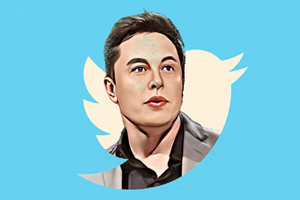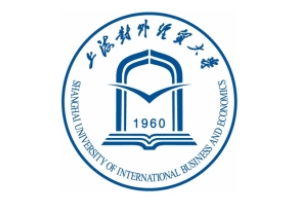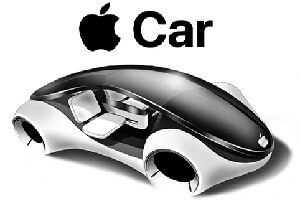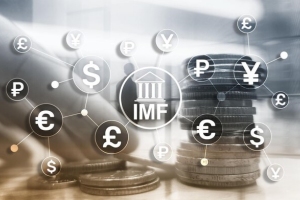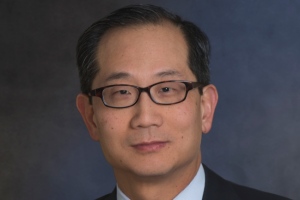Elon Musk Isn’t the First to Want to Buy Twitter
Narrator: This is the first tweet ever posted by Twitter’s co-founder, Jack Dorsey. And this is a tweet by Elon Musk, the richest man in the world, announcing a $43 billion bid to take over the platform 16 years later. His offer sparked national coverage.
“Billionaire Elon Musk, he’s offered to buy Twitter.”
“For $54.20 cents a share.”
“…and says he now wants to turn Twitter into the world’s ‘platform for free speech.’”
Narrator: Since that first tweet in 2006, several different contenders have looked to acquire Twitter. Let’s look back at Twitter’s previous suitors to figure out why those ultimately fell through and what could be different about this one.
Central to understanding Twitter’s battle for leadership is co-founder Jack Dorsey.
Time Higgins: Jack Dorsey comes with this generation of entrepreneurs in the Valley who really saw a new way of communicating. But Twitter has been a company that has long had its ups and downs.
Narrator: Dorsey’s first run as CEO ended after one year amid concerns that he was distracted by other hobbies. But in 2015, after he had founded another company, and as Twitter looked to revive its sagging user growth, Dorsey was reappointed to the position. The hope was that his founder title would afford him the leeway to make more significant changes than Twitter’s previous CEO.
Time Higgins: It was seen as a huge comeback. There was [were] comparisons to when Steve Jobs returned to Apple.
Narrator: Just one year after Dorsey reclaimed the reins, and nearly three since the company’s flashy IPO, some of the biggest names in tech and entertainment looked to buy Twitter.
Time Higgins: Jack Dorsey has said essentially Twitter is always for sale, has always been for sale. The issue around Twitter is that it’s, there’s often seen as this potential prize that big tech could buy. And that’s kind of what Jack Dorsey’s getting at, is that there’s this thing out here that people think that if they gussy it up, it could have incredible value.
Narrator: In September 2016, CNBC reported that the software company Salesforce was considering a takeover of the social media company. Salesforce already had a partnership with Twitter, which began in 2012. That alliance allowed Twitter to feed social media data into Salesforce’s analytic systems.
Time Higgins: At the time, the interest in Twitter was simple. It was about the data. Salesforce thought there was useful information to be gleaned and that it could have value to its corporate customers.
Narrator: At the same time, the Walt Disney Company considered an offer of its own. In this case, it was Twitter’s moves into sports streaming, rather than a focus on data, that attracted the attention of then-CEO, Robert Iger.
Time Higgins: ESPN, a sports property within the Disney family, was exploring those efforts, and they thought there might be a potential that Twitter could beef up that offering.
Narrator: And then, there was Google’s parent, Alphabet. For several years, the tech company’s dominance in search and advertising caused some analysts to speculate that it would be best suited to buy Twitter. But the company choosing to focus on its other ventures, like driverless cars and artificial intelligence, ultimately didn’t follow through with an offer. Salesforce was the final suitor remaining in 2016, after others like Disney grew skittish over Twitter’s image.
Time Higgins: Disney has a lot of brands within it, but, you know, at the core of that company is family entertainment. And one of the things that you increasingly see on Twitter is a lot of unfamily-like activities. It’s easy to understand why a company most associated with Mickey Mouse might not want to get into the gutter.
Narrator: Ultimately, Salesforce walked away from pursuing a combination, too.
Time Higgins: One of the challenges for any company thinking about buying Twitter is you are stepping into a tech company, but you’re also stepping into a company that has enormous policy decisions on its plate right now regarding freedom of speech, regarding content moderation.
Narrator: The policy concerns of buyers like Disney are now the reason for Musk’s desire to acquire Twitter.
Time Higgins: Elon Musk has framed his interest in Twitter simply as fighting to protect the freedom of speech. Elon seems to be motivated by his civic concerns. Now, we cannot kind of divorce the reality of the situation and that is Elon Musk would benefit perhaps.
Narrator: In a Ted Talk on April 14th, Musk provided further details about his plan to take Twitter private.
Elon Musk: I should also say that the intent is to retain as many shareholders as is allowed by the law in a private company, which I think is around 2,000 or so.
Time Higgins: Elon Musk’s comments about wanting to keep shareholders involved in Twitter raised a lot of red flags with people who have watched him operate in the past. It’s something similar he said when he wanted to take Tesla private. And there are rules about how many investors can be involved in these private companies. And that is one of the things that when he killed that deal to take Tesla private was pointed at and is part of the rationale for why it didn’t work.
Elon Musk: But if his offer is accepted, he won’t be the first billionaire to own a key player in the media.
Time Higgins: There is a long history of people with money looking for trophy purchases that give them power and influence. And for Elon Musk, owning Twitter, controlling that pipeline into millions and millions of people’s lives around the world, that would be incredibly powerful and it would give him some assurance that he could continue to use that tool.
Narrator: Musk may not be the only suitor for the company. Some private equity firms are now circling as well, but it’s still too early to know if any will make a formal bid. In the meantime, Twitter has adopted a poison pill that makes it hard for shareholders to build their stake beyond a set point in response to Musk’s bid.



